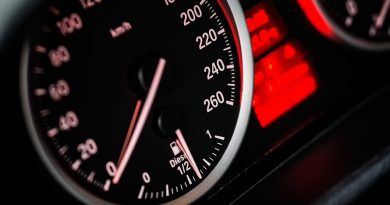Your car could be the one to catch on fire next
You could be driving one of the brands of cars most likely to catch on fire.
In 2015, about 174,000 vehicle fires were reported in the United States, according to the National Fire Protection Association. All of those fires involved gasoline powered cars. Tesla claims that gasoline powered cars are about 11 times more likely to catch fire than an electric car.
However, lithium-ion battery powered cars are not dismissed from these statistics. Lithium-ion battery fire is typically a short circuit within one or more of the battery’s cells, which generates heat. The heat then ignites the chemicals within the battery causing problems in the adjoining cells and lead to thermal runaway, which causes the fire to build and spread.
There is a significant difference between gasoline-powered vehicles and lithium-ion battery-powered vehicles once the fire starts. Gasoline fires start immediately when gasoline comes in contact with a spark and spreads rapidly. Battery fires typically take some time to reach the temperature it needs to start the fire. A delay is often times good news because it gives the occupants in the car enough time to get out before the fire starts.
However, there are some complications added to the delay in battery powered cars. In an event where the car runs over debris and damages the batter, the driver might not be aware of this damage until much later, so essentially the car could be parked at home in a garage or close to other cars and the fire could start suddenly.
Now, no one wants to be in a car when it suddenly catches on fire, so the leading cars that you should keep an eye out for are Ford, Chevy, Mini Cooper made by BMW, and Pontiac. In 2017, Fords were the cause of 29 engine fires in just one week. The reason for this is that the sensor that warns owners when the coolant is low was not working properly causing the car to heat up. The recall of Fords included about 230,000 vehicles in North America. In the U.S. the recall includes Escape SUVs from the 2014 model year, plus the 2014 and 2015 compact Fiesta ST, the 2013 and 2014 Fusion midsize car and the 2013 through 2015 Transit Connect small van.




